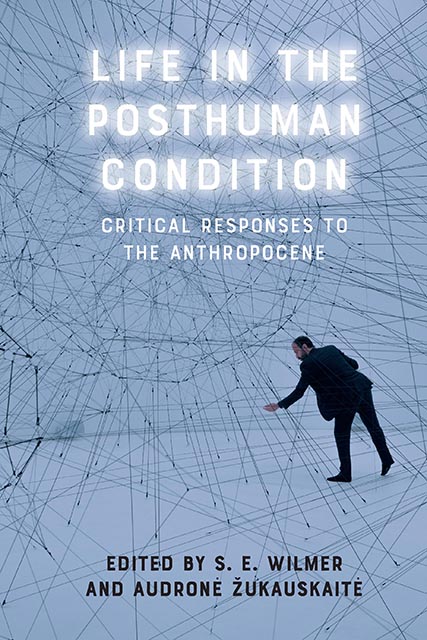1 - Anthropocene Desperation in Gaian Context
Published online by Cambridge University Press: 20 October 2023
Summary
Years before COVID-19 hit, American evolutionary theorist and major Gaia proponent Lynn Margulis sized up the ‘pandemic we call progress’ in noting that ‘what has been called “the Earth's environment” is no externality’ (Margulis 2006: 12). That is, in a Gaian view, the environment is not ‘out there’; we are inside it. Our despoilments are thus self-mutilations. Especially when it comes to Gaia, we cannot help but include ourselves within the sytem to be observed, not at all as primary agents, but fundamentally as distributed geobiological elements intricately bound up with the whole system. Moreover, in the rhetorical theatre of this statement, Gaia also looks back at us, but with a diminishing gaze:
The environment is part of the body. Therefore, for us, the talkative, lying, quarrelsome but endlessly manipulative, social ape, the disrespectful act of despoilment, the self-mutilation, the pandemic we call progress (e.g., deforestation, desertification) are, for Gaia, only petty activities, a masochism writ large of the mammalian kind that Gaia has seen before. Gaia continues to smile: Homo sapiens, she shrugs, soon will either change its wayward ways or, like other plague species, will terminate with a whimper in the current scourge, in this same accelerated Holocene extinction it initiated and has sustained over the past 10,000 years. (Margulis 2006: 12)
Personifying Gaia as somewhat irritated by human annoyances, Margulis issued a blanket condemnation of anthropic folly. Composing this passage in 2006, she was likely aware of the onset of ‘the Anthropocene’ as a new geological description of contemporary planetary dynamics. If so, she was having none of it. Through a leap of identification with Gaia's planetary perspective, a view in the making since joining forces with British scientist James Lovelock at the start of the 1970s, Margulis saw through our ‘human age’ to perceive the leading edge of an extinction event for which humans have indeed been the primary agents – not just since the steam engine or Hiroshima, as indicated by some Anthropocene chronologies, but at least since the recession of the last ice age – and to which humans have now put themselves in peril of succumbing (Rull 2022).
- Type
- Chapter
- Information
- Life in the Posthuman ConditionCritical Responses to the Anthropocene, pp. 15 - 32Publisher: Edinburgh University PressPrint publication year: 2023



